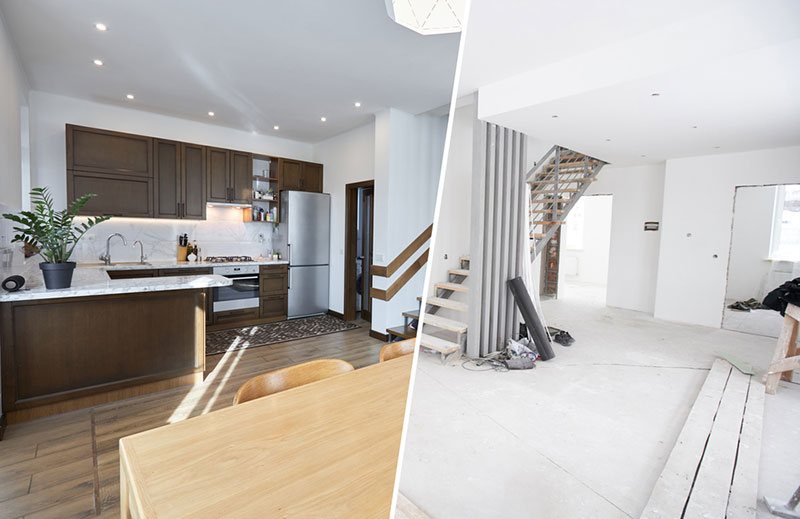Advertisement
Renovating your house can be a challenging task. Apart from the cost, it changes your daily routine and demands that you spend more time tracking the process and coordinating the designers and the contractors.
The key to a successful renovation is to lay out a proper plan and consult professionals before you renovate. Here are a few tips to guide you in planning a whole-house renovation.
Find Out What Part Of The Renovation You Can Do Yourself
Some homeowners prefer to do some of the renovations themselves to cut costs. They may also do it themselves to reduce the duration it will take to complete the renovation. Plus, some simple tasks do not require a professional, such as repainting some walls or removing your kitchen countertops. As a result, you want to evaluate how much of the renovation you can do yourself and which areas will need an expert to renovate.
Create A Budget
Several factors will determine your overall cost of renovating, such as the contractors’ fees, the house plan, and the design. You may need to consult a professional to get the exact cost of renovating. Make room in your budget for any expenses that may come up that you had not anticipated. Most homeowners rely on their savings or take out a home equity loan to ensure sufficient funds to cover their whole-house renovation project.
Settle On A Design
One of the primary reasons people decide to renovate is that they need to change the layout and design of the house. Are you looking for a contemporary look, a Victorian-style theme, or do you have other creative styles? Choose a design that represents your personality and aligns with your taste and preferences. Before choosing a plan, you may want to research online, talk to friends who have gone down the same road before, or consult with design professionals in the industry that works on producing lux interiors and design.
Get The Required Approvals
Home renovations will require specific permits. While electrical or fence demolition permits take a short time to get, building permits take a while to be approved. If you plan on zoning, including a home addition, you should realize that the approval can take a few weeks. Make sure you start the permit approval process in good time so it doesn’t delay your plans.
Get A Builder’s Risk Insurance
Renovation of the entire house is a large project with risks involved. You may want to find out what your homeowner’s insurance policy covers, then shop for builder’s risk insurance so that your investment is covered in case of any calamities like vandalism, flooding, or theft. If your homeowner’s insurance policy covers the above, it’s better to think twice before taking a second insurance policy.
Choose Your Contractors

The contractor you settle on will determine how well the renovation will turn out. Do not base your decision on the rates alone when choosing a contractor. Consider other factors such as qualifications, past projects accomplished, and years of experience. You may also want to consider references from friends or family.
Make sure your contractors have valid practicing certificates and up-to-date insurance policies covering compensation and liabilities for their work. If you will engage several contractors, make sure you appoint the contractor who will be in charge and oversee the entire work to avoid any conflicts.
Have A Timeline
Once you have a design, hired a contractor, and listed your specific budget, it is time to create a timeline. It should clearly outline when the work begins and when you intend to finish. It should clearly outline when the work begins and when you intend to finish.
Your contractor should assist you in determining what work will be done at which particular time and the estimated time it will take to complete. The timeline should make it easy for you to keep track of the progress.
It would be best if you made provisions in your timeline for unforeseen delays since some renovating stages may take longer than anticipated. Make room for any modifications in the timeline. You also want to ensure your timeline includes the time it will take to clear out any debris left after completing the renovation or any holidays the team may take while the project is ongoing. Without a timeline, there is a high chance your home will take a long while to renovate.
Conclusion
Ultimately, hiring professionals to undertake the renovations saves you time and stress. Ask your contractor as many questions as possible before they begin the work. You must also understand that as much as you have a timeline, whole-house renovations may take a long time to finish. With the tips above, you are ready to start your renovation journey.

